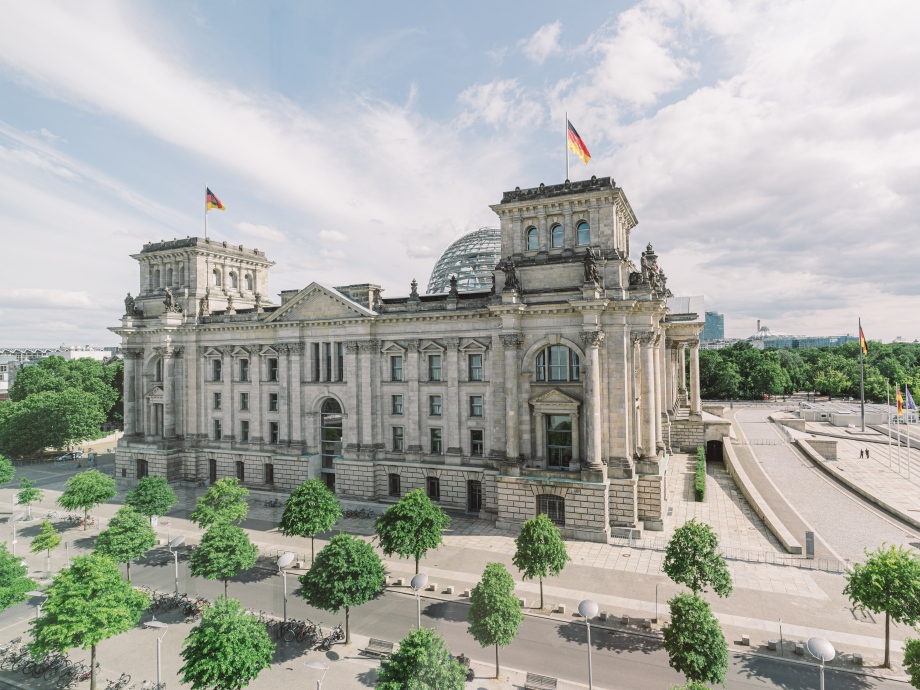Our partners abroad: TAB
The Rathenau Instituut has been unique in the Netherlands for 35 years. Worldwide there are at least 22 other institutes that advise parliament and citizens on the possible societal consequences of technological developments. In the European Parliamentary Technology Assessment network (EPTA) they cooperate and try to learn from each other. Now that the Netherlands is EPTA chair for a year, we want to get to know some of these institutes better through a series of articles. In this episode: Reinhard Grünwald of the Büro für Technikfolgen-Abschätzung beim Deutschen Bundestag.

In short:
- Reinhard Grünwald has worked for the TAB since 2000.
- According to him, Germany missed the digital revolution in education.
- The TAB recently presented a report on autonomous weapon systems.
It is a sunny afternoon when we speak Reinhard Grünwald , researcher at the Office of Technology Assessment (TAB). In a small park next to the river Spree, in between the Hackescher Markt and the Pergamonmuseum, we sit on a bench with 1,5m distance between us. In the background people are listening to loud electronic music. In other words; a very typical day in Berlin in the first half of 2021.
What issues in science and technology are you at the TAB most concerned about in 2021?
‘There is hardly any other thing that is on our minds but COVID-19 these days. And I expect this topic will stay there for some time to come. But at the TAB we decided to keep focusing on topics that we initially planned, and not put it all aside for COVID-19, like some other EPTA institutes do. The TAB is not made for quick reaction time projects. Most of our projects are long term, and even when we do all the best we can, a project is at the shortest half a year. To respond to issues concerning COVID-19, you need quick answers and a variety of expertise. Besides that: there are so many institutions in Germany that specifically focus on COVID-19. We did not visualize a role for the TAB where we could contribute to this discussion in the setting of the German political sphere and advisory boards at the moment.’
Looking at the COVID-19 pandemic, what do you think the Dutch and Germans can learn from each other?
‘The innovation system is strong in Germany, which is reflected in the great success of BioNTech. So I would say that Germany is particularly strong in its scientific excellence and, combined with the big pharmaceutical players, Germany is a front runner in innovation.’
‘What we can learn from the Dutch is to be more pragmatic. I associate pragmatics with the Dutch, so that is why I make this comparison. For example, looking at the German vaccination campaign, we tried to make the perfect rules. We had an ethics committee approving these rules, taking a long time to go back and forth to fine tune those rules. In the end we had “the perfect rules” , but in doing so, the aim to vaccinate as quickly as possible was lost out of sight.’
‘Something else we can learn from the Dutch, and from our Scandinavian neighbors, is speeding up the digitalization in the schooling system. We have missed the digital revolution in the education sector. Whereas in the Netherlands and Denmark , many kids had their own laptops with school systems installed, in Germany these means did not exist. Something that is a problem, especially in times of COVID-19.’
Which of the projects was a highlight of the past year?
‘We continued the work on projects we had in the pipeline, of which one was on autonomous weapon systems. Robotic weapon systems that can select targets without any human intervention are on the edge of being realized. We published a report of its technological developments, security policy implications, ethical arguments and issues in humanitarian law. We had a presentation of our report in the Bundestag with a hybrid format so the general public could stream it. It was very well received in the press, with many interviews and pieces in popular science outlets. One of the parties even made a political motion on banning these systems and quoted our reports. So here you could see a direct visible impact of our report on political action in the Bundestag.’
Any interesting new projects coming up?
‘There is a wide range of projects coming up. One is on hydrogen partnerships, as part of the hydrogen strategy that has recently been laid out by the German government. We are going to explore the potential, chances and risks involved in setting up hydrogen infrastructures nationally and internationally. Because we will need massive amounts of hydrogen, so the question is where we are going to get it from and how it is going to be transported.’